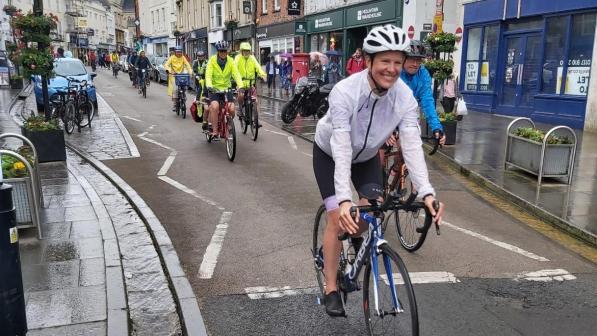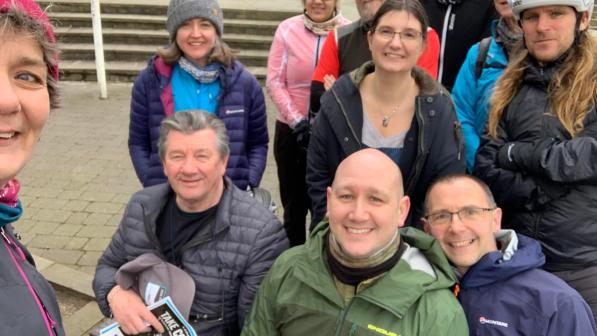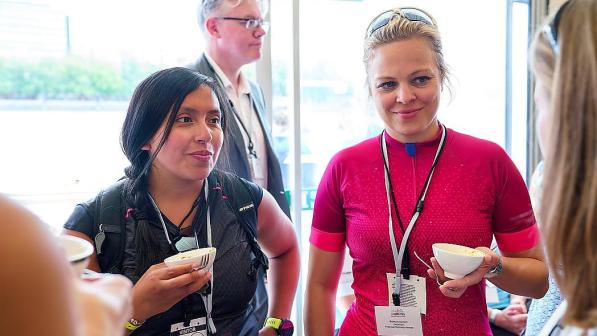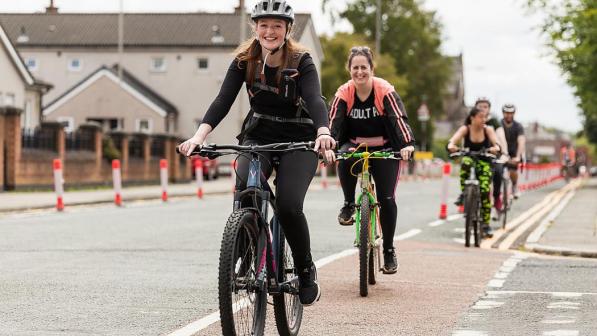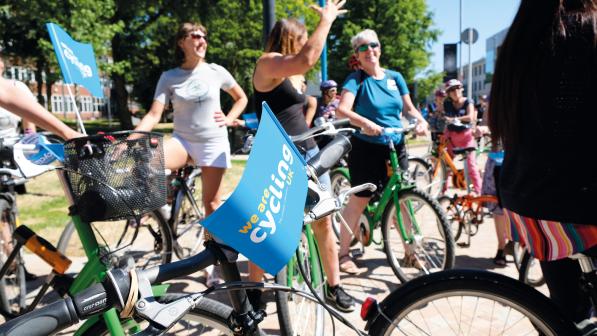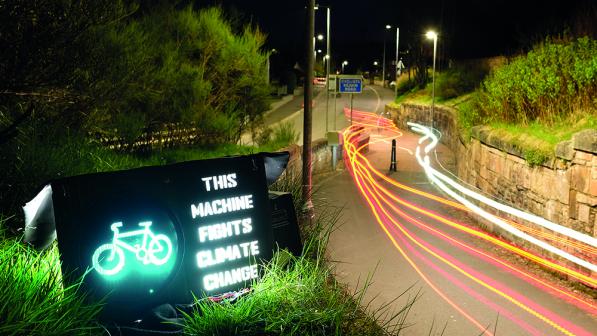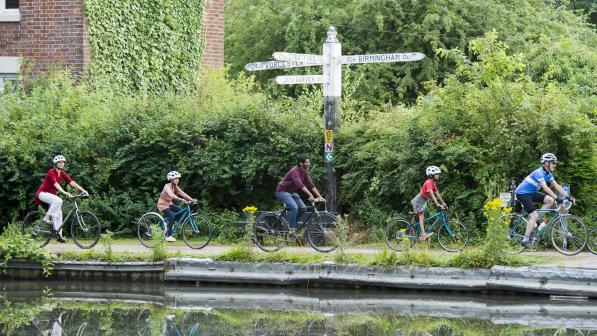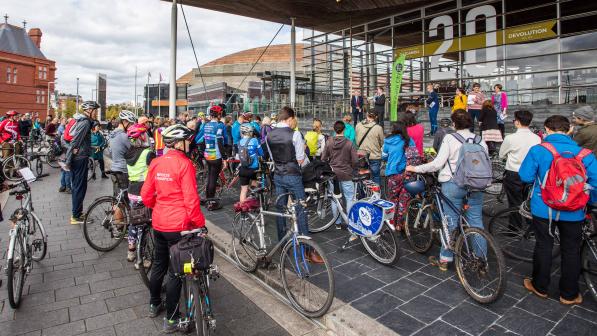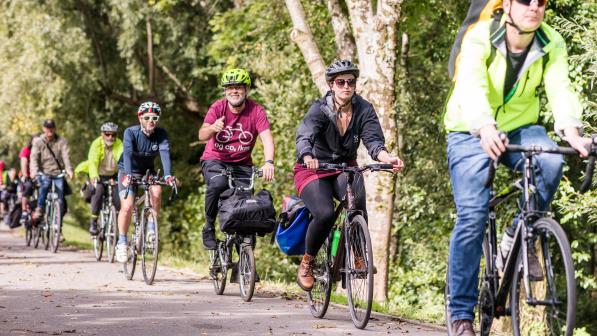Electrifying the Cycle Advocacy Network

Current times
One of the most heart-warming times I’ve had on a bike in recent months was back in early October. I joined Cycle Winchester’s mass ride and proclamation of the Cycling Charter – a simple statement by people, institutions and businesses that cycling has untapped potential to make Winchester a better, livelier city.
Several hundred people from the tiniest tots to the elders of cycling completed a couple of leisurely laps of the one-way system on a Saturday morning and then gathered outside the County Council headquarters. We celebrated our presence with bells, horns and voices. We demonstrated that many ordinary people want to get around under their own power in our everyday lives.
The mass ride was part of a wider Winchester Green Week, which itself was one of a myriad of community-focused events across the UK in the run-up to the UN climate conference in Glasgow – perhaps you took part in one yourself?
A lot of people have been speaking up for cycling. Together, we have given voice to the fact that, when wired into communities and across nations, cycling has the power to help make the world a healthier, more resilient and joyful place to live.

The potential difference
I was struck by the ‘This machine fights climate change’ tagline coined by Pedal on Parliament in Scotland and amplified by Cycling UK during COP26. It has high valence. It resonates with ambition, industry and combativity, yet it also allows us to capture personal images and insert ourselves into the story: it’s not just any old machine – here’s me with my old bike, and I love it.
The outcome from COP was significant. We have finally managed to get active travel mentioned in the transport declaration – a vital step forward on the journey at international level. But a large chunk of our transport-related carbon emissions is made by our journeys at a local level, so now it’s time to refocus our energy closer to home.
If many of the shorter journeys currently travelled by motor vehicles were cycled instead, our carbon footprint would shrink significantly. A huge number of people can potentially use these cycling machines – bikes, trikes, handcycles, e-cycles, cargo bikes – for a wide range of everyday journeys and tasks.
But we will only do so if there are safe, accessible spaces and routes in (and between) our villages, towns and cities. So we will keep speaking up.
In a previous blog post, I wrote about the number and quality of people involved as local representatives and regional coordinators in the Cycle Advocacy Network (CAN). Since then we’ve broadened the reach of CAN so that everyone who champions cycling in their community can connect with the network.
Our voices do make a difference when we speak up together. We are teachers and nurses, workers and students, drivers and shoppers, parents and children, electors and elected. We need to recruit more people to the choir and amplify our message.

Results in power
So who do we sing to next? The answer will be different from place to place, and next May’s elections (local in Wales, Scotland and parts of England; national in Northern Ireland) are important for influencing our elected representatives and candidates and letting them know about the local changes that are needed.
Councillors and Assembly members really must take meaningful action to transform national pledges into facts on the ground, and they need to understand the broad base of support that there is in the general population for huge improvements to walking and cycling measures.
In recent days we’ve hosted a series of ‘working lunches’ – online discussions where we’ve shared some initial thoughts about how Cycling UK might campaign during spring 2022. We extended an invitation to everyone who has connected with the Cycle Advocacy Network so far.
The local campaigners who participated responded with their ideas about how our central campaign for each nation can usefully support their local initiatives – and what more they’d like to see from us.

These were valuable discussions as we explore and energise the relationship between Cycling UK’s campaigns team, the Cycle Advocacy Network and cycle campaign groups more widely. Metaphors are fine, but these are material issues and we need to make things work practically.
We will ensure that campaigners can use and adapt the materials we generate centrally to speak authoritatively to their local situation. Our objective is to support you to be as effective as possible, or, to revert to the metaphor, to electrify your local campaigning activities.
So the conversation continues and, as ever, there’s work to be done. If you’d like to find out more about joining in, please do plug in to CAN. Visit our page on the Cycling UK website to learn about upcoming gatherings and the latest suggested actions, connect with us for updates and perhaps even volunteer as a local representative or regional coordinator. You’ll power us; we’ll power you.
If you want to know more about the thinking behind CAN, watch this video or see Further Reading below.
